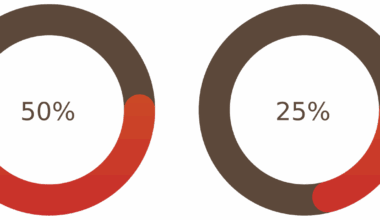The Role of Zinc in Immune Function for Seniors
Zinc is a vital mineral that plays a significant role in maintaining immune function, particularly in seniors. It has been shown to enhance the activity of various immune cells, such as T-lymphocytes and phagocytes. In older adults, the aging process often leads to a decline in immune response, making them more susceptible to infections and diseases. Zinc helps mitigate these effects by stabilizing cell membranes and aiding in cell signaling pathways critical for immune defense. Adequate levels of zinc are essential for the synthesis of important proteins and hormones that regulate various immune functions. Moreover, zinc has antioxidant properties that protect cells from oxidative stress, which can further compromise the immune system. Foods rich in zinc, such as meat, shellfish, dairy, legumes, and seeds, should be integral parts of a senior’s diet to maintain optimal health. For seniors experiencing zinc deficiency, it’s crucial to consider supplementation only under medical supervision to avoid toxicity. Regular monitoring and assessment of zinc status may be vital in ensuring seniors remain healthy and active with robust immune responses.
As seniors age, their nutritional needs evolve, particularly when it comes to immune-supporting nutrients like zinc. The most common sources of dietary zinc are animal products; thus, plant-based diets may require careful planning to ensure adequate intake. Zinc deficiency can lead to consequences such as impaired immune response, delayed wound healing, and even cognitive decline. To prevent these outcomes, older adults should incorporate a variety of zinc-rich foods into their meals. For those who may experience malabsorption issues or have increased needs, such as during illness, discussing dietary changes with a healthcare provider is crucial. Additionally, it’s important to note that older adults might face challenges in chewing and digesting zinc-rich foods, making softer alternatives like yogurt and oatmeal necessary options. Engaging in nutrition education can empower seniors to modify their diets effectively, focusing on nutrient-dense foods to bolster their immune system. A balanced diet, along with staying well-hydrated and maintaining physical activity, forms the foundation of good health in older adulthood, ensuring they can enjoy life to the fullest while maintaining immunity.
Understanding Zinc’s Mechanisms of Action
The mechanisms of zinc in the immune system involve complex biological processes. It’s not just about increasing quantities of immune cells; rather, zinc participates directly in the functions these cells perform. It influences the production and activity of numerous signaling molecules such as cytokines, which are crucial for communication between immune cells. Without adequate zinc, these processes may be disrupted, leading to an impaired immune response. Moreover, zinc facilitates the functions of enzymes that participate in the synthesis of DNA and RNA, which is crucial for cell proliferation and repair during immune responses. It also plays a role in the transformation of stem cells into immune cells, underscoring its foundational importance. The timing of zinc intake can also impact its efficacy; taking zinc after the onset of illness may help shorten the duration of symptoms. On the other hand, regular consumption can fortify the immune system over time. Therefore, understanding how zinc works within the body can help seniors and caregivers make informed dietary choices that support long-term health and resilience.
Supplementing with zinc offers potential benefits but should be approached with care. For seniors, the ideal dose can vary widely depending on individual dietary habits, biomedical factors, and overall health status. While insufficient zinc can lead to serious health issues, excess zinc can also result in toxicity, manifesting symptoms such as nausea, vomiting, and even impaired immune function. This toxicity can interfere with the absorption of other essential minerals like copper and iron. Recommendations advise that older adults ideally source their zinc through food unless specific deficiencies are diagnosed that warrant supplementation. If supplements are necessary, consulting a healthcare provider is paramount to determine the safe dosage and duration of use. Taking zinc with meals can also help minimize gastrointestinal discomfort. Additionally, combining zinc with other immune-supporting vitamins like vitamin C and vitamin D can create a synergistic effect that enhances overall immune function. Thus, seniors are encouraged to focus on diet first, prioritizing natural sources of zinc while considering supplementation as a secondary option if needed.
Food Sources Rich in Zinc
A variety of foods can provide the necessary zinc to support immune function in seniors. Animal-based sources include red meat, poultry, seafood, and dairy products. Oysters, in particular, are one of the richest sources of zinc, providing more than any other food per serving. For vegetarians or those limiting animal products, beans, chickpeas, lentils, nuts, seeds, and whole grains can also be good sources, although they contain phytates that can inhibit zinc absorption. Soaking, sprouting, or fermenting grains and legumes can enhance their zinc bioavailability. Dark chocolate and some fortified breakfast cereals also contribute to zinc intake, making them appealing options for seniors. Balance and variety in food choices are vital strategies to ensure overall nutritional adequacy. Creating meals that incorporate different sources will help maintain a balanced diet without excessive reliance on any one food group. Attending workshops or cooking classes focused on healthy eating for seniors can inspire them to try new foods and methods for preparing zinc-rich meals. This engagement promotes better nutrition and social interaction as well.
As important as dietary intake is, lifestyle factors can also influence zinc status and overall immune health. Regular physical activity has been shown to enhance immune function, helping improve circulation and promoting the efficient distribution of zinc to tissues that require it. Furthermore, maintaining a healthy weight is crucial, as obesity can negatively impact the immune system, often leading to chronic inflammation. Seniors should aim for a balanced exercise routine, consisting of both aerobic and strength training activities, tailored to their abilities and preferences. Prioritizing sleep is equally significant; adequate rest allows the body to repair and regenerate during the night. Stress management techniques, such as meditation, yoga, or other relaxation practices, can prevent chronic stress, which adversely affects immune health. Smoking and excessive alcohol consumption can deplete zinc levels and should be avoided. Exploring healthy stress-reduction methods, along with engaging socially in group activities, can foster a supportive community. Ultimately, a holistic approach to health that combines a nutritious diet, lifestyle modifications, and community support can significantly boost immune function for seniors.
Conclusion: Emphasizing Zinc for Immune Health
In conclusion, zinc is pivotal in maintaining immune function, particularly among seniors. As they age, ensuring adequate zinc intake through diet becomes important for their overall health and well-being. By focusing on appropriate food sources and considering supplementation under medical guidance, older adults can significantly enhance their immune responses. Additionally, maintaining a healthy lifestyle through physical activity, proper sleep, and stress management can complement dietary efforts. Seniors and caregivers must stay informed about the role of micronutrients and their impacts on health, including zinc’s multifaceted benefits. Community resources have the potential to provide support and knowledge, enabling seniors to make better dietary choices. Incorporating educational programs that highlight healthy eating, particularly concerning zinc-rich foods, can prove beneficial. By fostering an environment of awareness and support, we can help seniors lead healthier lives, reducing susceptibility to illness and enhancing quality of life. As we age, prioritizing a nutrient-dense diet enriched with zinc is crucial to maintaining robust immunity, paving the way for longer, healthier years.


